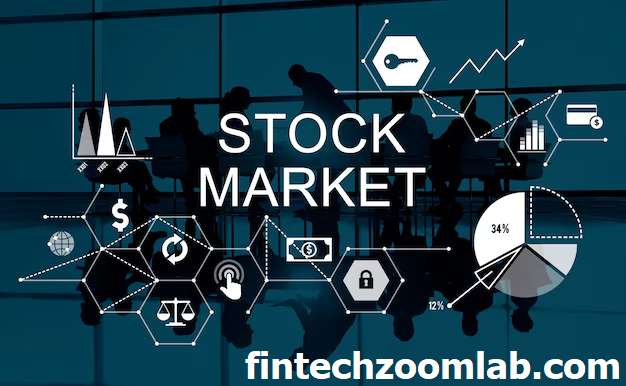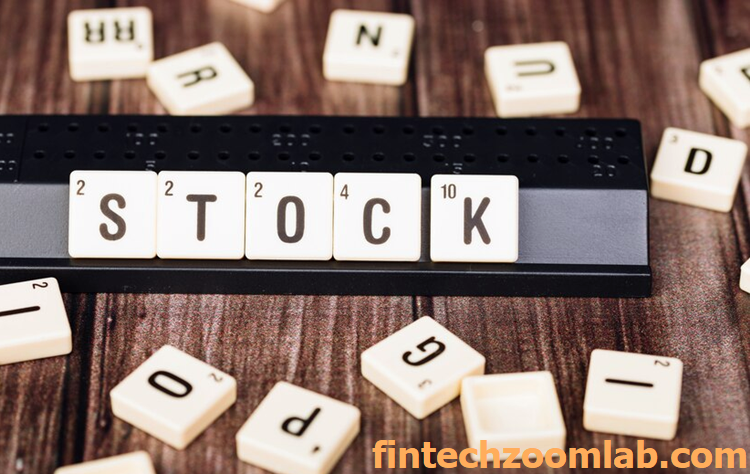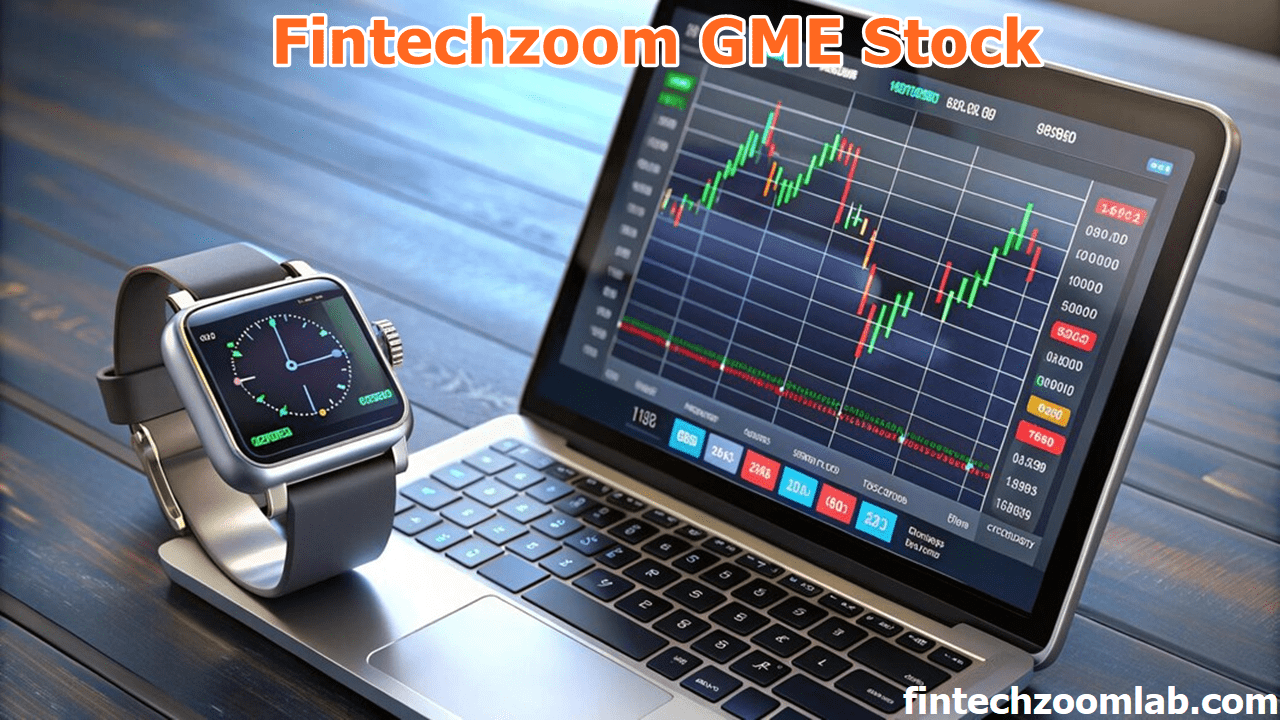GameStop’s stock saga was nothing short of a financial revolution. What started as a buzz among retail investors quickly spiraled into one of the most talked-about moments in stock market history. With FintechZoom providing real-time updates and analysis, Fintechzoom GME Stock became a symbol of defiance against Wall Street giants.
Driven by social media communities like Reddit’s WallStreetBets, retail investors rallied together, triggering a massive short squeeze that caught the financial world by surprise. This meme stock revolution wasn’t just about numbers it was a cultural phenomenon, highlighting the power of collective action in the digital age.
This complete guide traces the journey of GME stock, from its humble beginnings to its explosive rise and eventual stabilization, all while highlighting the factors that contributed to this meme stock revolution. The events surrounding GameStop not only changed the lives of countless investors but also revolutionized how the stock market functions today.
Origins of Fintechzoom GME Stock as a Meme Stock
Before becoming a household name, GameStop was a fading brick-and-mortar retailer struggling to compete with digital game downloads and a shift toward online shopping. Its stock, therefore, languished, largely ignored by Wall Street and institutional investors. However, this scenario began to change in mid-2020 when a handful of astute retail investors noticed that large hedge funds had heavily shorted Fintechzoom GME Stock, betting that the company’s value would continue to plummet.
This heavy shorting of Fintechzoom AMC Stock presented a unique opportunity for retail investors. If they could collectively drive up the stock price, it would trigger what is known as a short squeeze—a phenomenon in which those who have bet against a stock are forced to buy back shares at a higher price to cover their losses, driving the price even higher. As retail investors began to buy up shares, the seeds of the meme stock movement were sown.

The Rise of GME: How the Internet Fueled a Stock Revolution
By January 2021, the quiet rumblings about GME stock on the internet had become a full-blown roar, thanks to the power of social media. Platforms like Twitter and, most notably, Reddit, became hotbeds of discussion about the potential of GME stock to perform a massive short squeeze. The online forum WallStreetBets played an instrumental role in this uprising. Retail investors, emboldened by their collective power and disdain for Wall Street institutions, began buying Fintechzoom GME Stock en masse.
What followed was nothing short of a financial spectacle. In the span of days, the price of GME stock skyrocketed from under $20 to nearly $350 per share. The move not only caught hedge funds off guard but also sent shockwaves through the financial industry. The meme stock movement, which had started as a grassroots effort by individual investors, had now grown into a full-fledged revolution with far-reaching consequences.
During this time, the mainstream media began to take notice, amplifying the fervor around Fintechzoom GME Stock even further. Retail investors saw their confidence grow, while hedge funds that had shorted the stock faced astronomical losses. The battle lines were drawn between retail investors—who had dubbed themselves “apes” to symbolize their unity and institutional players, resulting in a fierce financial clash that became front-page news globally.
Key Players in the Fintechzoom GME Saga Stock
In any revolution, there are protagonists and antagonists, and the GME stock story was no different. On one side, you had the retail investors, many of whom were ordinary people with little prior experience in the stock market. They saw GME stock as not just an opportunity to make money but as a way to challenge the established financial order. Their weapon of choice? Social media, where they organized, strategized, and encouraged one another to “hold the line.”
Opposing them were the hedge funds, the most prominent of which was Melvin Capital. This hedge fund had taken significant short positions on GME stock, expecting the company’s value to continue its decline. However, when the retail investors began driving up the price of GME stock, hedge funds like Melvin Capital found themselves in a precarious position. As the stock price surged, these funds were forced to buy back shares at inflated prices, incurring massive losses in the process.
The short squeeze phenomenon that ensued was the stuff of legend. As hedge funds scrambled to cover their positions, the price of Fintechzoom GME Stock soared even higher, fueled by the influx of media coverage and social media hype. The result was one of the most dramatic financial turnarounds in recent history, with GME stock becoming a symbol of the power of collective action in the stock market.
Impact of the Meme Stock Phenomenon on Financial Markets
The rise of GME stock and the broader meme stock movement had far-reaching consequences for the financial markets. For one, it revealed just how much influence retail investors could have when they act together. Traditionally, stock markets were dominated by institutional players like hedge funds and investment banks. However, the GME stock saga demonstrated that retail investors, armed with the right information and social media platforms, could disrupt even the most powerful financial institutions.
The sheer volatility of GME stock during the height of its rise raised questions about market regulation and whether existing rules were sufficient to handle such unprecedented situations. Many institutional investors and regulators called for reforms, arguing that the wild fluctuations in stock prices, driven by social media and retail traders, threatened the stability of the financial markets.
Despite these concerns, the meme stock movement also empowered a new generation of investors who had previously felt shut out of the stock market. For many retail investors, the success of GME stock was proof that they could challenge the status quo and play a role in shaping the future of the financial markets.

Lessons Learned from the GME Stock Revolution
The GME stock revolution taught the financial world several important lessons. Perhaps the most significant of these is the power of collective action. Retail investors, once seen as disorganized and outmatched by institutional players, showed that they could influence the stock market in meaningful ways when they worked together. The success of the short squeeze on GME stock was a testament to the power of community and shared goals.
However, the GME stock saga also underscored the risks associated with meme stocks. While some investors made substantial profits, others were left holding the bag when the stock price eventually plummeted. As with any investment, there are risks, and the volatility of meme stocks like GME stock means that prices can rise and fall rapidly.
For the broader market, the Fintechzoom GME Stock revolution also highlighted the need for greater transparency and regulation. The role of social media in driving stock prices is still a relatively new phenomenon, and regulators are grappling with how to manage the influence of platforms like Reddit on the financial markets.
Future of Meme Stocks in a Post-GME World
The meme stock movement may have been born out of the GME stock saga, but it is far from over. Even as the initial frenzy surrounding GME stock has died down, the idea of retail investors banding together to challenge institutional players has gained significant traction. Many experts believe that the lessons learned from Fintechzoom GME Stock will shape the future of investing, particularly for the next generation of retail investors.
In the post-GME world, investors are likely to continue looking for opportunities to challenge the status quo. While GME stock may no longer be the driving force behind this movement, the spirit of the meme stock revolution lives on in other stocks like AMC and BlackBerry, which have also experienced significant volatility driven by retail investors.
Looking ahead, it remains to be seen how regulators will address the challenges posed by meme stocks. The rise of GME stock has forced financial institutions and regulators to rethink their approach to market oversight, and future reforms may be necessary to ensure that the stock market remains fair and stable for all participants.
Conclusion
The story of Fintechzoom GME Stock is one that will be studied for years to come. It was not just a financial event but a cultural moment, a symbol of how ordinary people, armed with the power of the internet, could challenge the established financial order. The meme stock movement, sparked by the rise of GME stock, has forever changed how we think about the stock market, retail investing, and the power dynamics between ordinary investors and institutional players.
As the dust settles on the Fintechzoom GME Stock revolution, one thing is clear: the stock market will never be the same. The influence of retail investors, fueled by platforms like Reddit and Twitter, has become a permanent fixture in the financial landscape. And while the future of GME stock remains uncertain, its legacy as a game-changer in the world of finance is secure.
